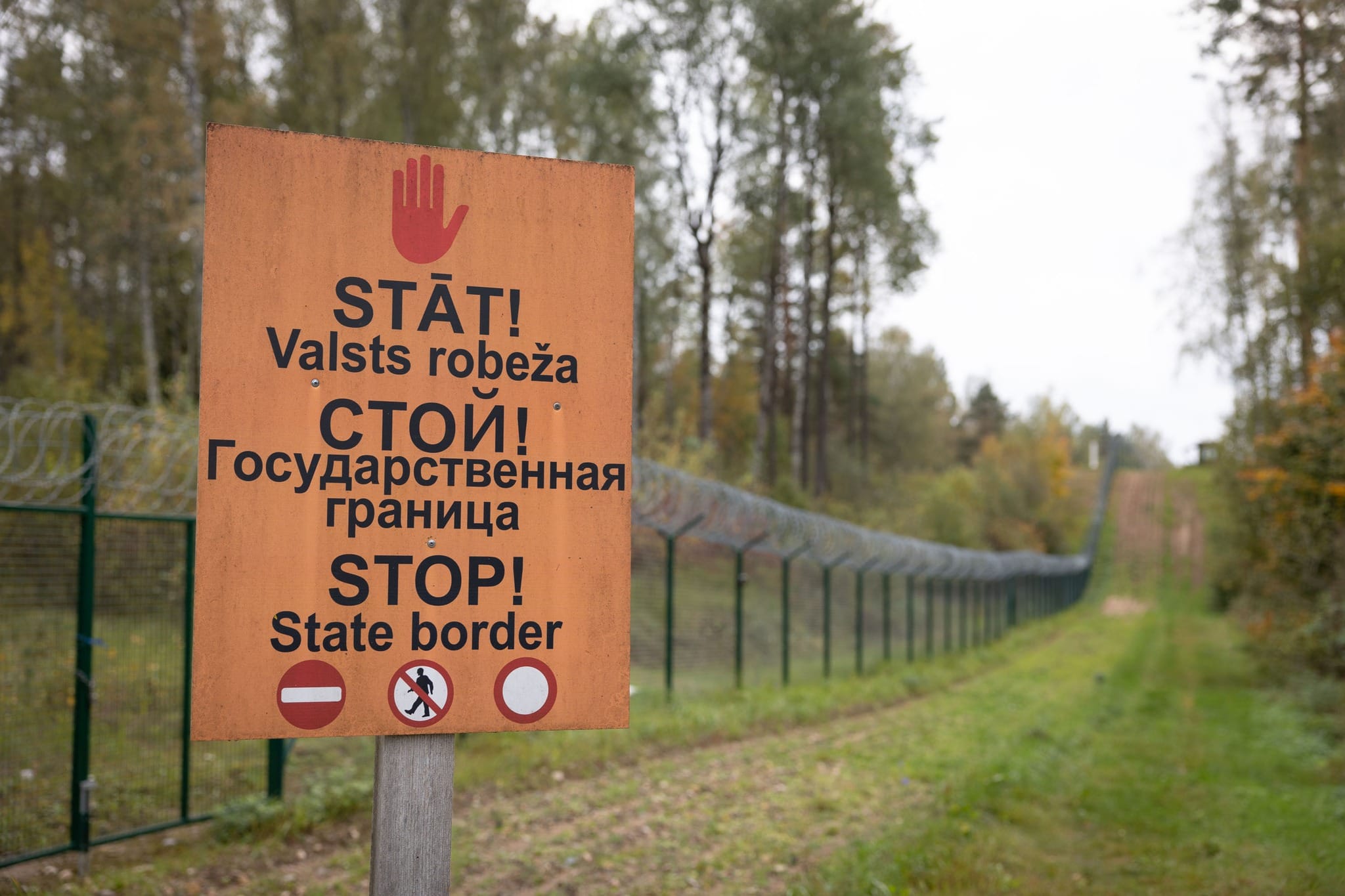In July 2025, news spread on Russian-language social networks that an employee of the Latvian border service had died after being blown up by an anti-personnel mine. Shortly before this, Latvia announced that it was withdrawing from the convention banning this type of weapons. We have verified the accuracy of such publications.
“The first to go: a Latvian border guard died after being blown up by an anti-personnel mine. According to Latvijas Vēstnesis, the tragedy occurred on July 18 as a result of the detonation of one of the anti-personnel mines installed to deter a potential offensive by the Russian army. Earlier, the President of the Republic, Edgars Rinkevics, signed a law on Latvia’s withdrawal from the convention banning unguided anti-personnel mines,” told July 20 on social network X user @otdelenie. As of this writing, his tweet has been viewed nearly 49,000 times. News also received widespread on Facebook, where one of the posts collected 179 reposts. Similar entries appeared in “Odnoklassniki", Telegram and on other platforms.
In 2025 Latvia came out from the UN Ottawa Convention, which prohibits the use, stockpiling and production of anti-personnel mines. This happened back in April, when the corresponding law was approved by the country's President Edgars Rinkēvičs. The initiator of the withdrawal from the convention was the Latvian Ministry of Defense, which explained this need by the desire to ensure the security of the country. “We must be prepared for the fact that Russia will continue to pose a threat to the region, regardless of how military operations in Ukraine develop,” reported head of the department Andris Spruds. At the same time, Estonia, Lithuania and Poland decided to withdraw from the Ottawa Convention.
However, according to text of the convention, a state does not cease to be a party to it immediately, but only six months after it submits the relevant documents to the UN. Official representatives of Latvia done this is June 27, that is, the country will be able to place anti-personnel mines on its territory no earlier than December 27. At the same time, viral publications claim that the border guard was blown up by a mine on July 18th.
The authors of the posts name Latvijas Vēstnesis as a source of information. This official publication Republic of Latvia. It publishes not news, but decisions of various departments and courts, advertisements for hiring in government agencies, messages about the sale of state-owned real estate, etc. It is in Latvijas Vēstnesis in the spring was published law on Latvia's withdrawal from the Ottawa Convention. There was no material there that a representative of the republican border service died by a mine in mid-July. Major Latvian media or officials also did not report this - on the contrary, department representative Kristīne Petersone in a conversation with Re:Baltica statedthat no such incident occurred.
On July 24, the Ministry of Defense and the Latvian Border Guard in a joint press release called reports about the death of a border guard were fake and reminded that there are no mines on the border now. “We must emphasize once again: mines are not intended to be placed in peacetime. Following withdrawal from the Ottawa Convention, the acquisition, deployment and use of any potential unguided anti-personnel mines will depend on military logic, necessity and defense development priorities,” the departments added.
The original source of the news that went viral on social networks is fast in the Telegram channel “but my Yandex wallet,” which appeared on July 20 at 12:40 Moscow time. “Parody, satire on political reality. Only verified fakes,” says the channel description.
This is not the first time that news that comes up with “but my Yandex wallet” has spread throughout the Russian-speaking segment of social networks under the guise of being real. Thus, among such fakes, two statements were widely spread: attributed to publicist Andrei Piontkovsky phrase that on the shelves of Russian stores there are only dummies of products, and allegedly words former German Foreign Minister Annalena Bärbock that Ukraine managed to rehabilitate the swastika in the eyes of the free world.
Thus, in mid-July 2025, a Latvian border guard did not blow up an anti-personnel mine installed on the border with the Russian Federation shortly after Latvia’s withdrawal from the convention banning this type of weapon. This information first appeared in a channel that publishes fictitious news.
Cover photo: Valsts robežsardze
- Is it true that after the terrorist attack in Crocus, the Latvian authorities banned bringing flowers to the Russian Embassy in Riga?
- Is it true that a message to Estonians was shown on the wall of Narva Castle on Russian Language Day?
- Is it true that Estonia has passed a law allowing suspicious ships to be sunk to protect undersea cables?
If you find a spelling or grammatical error, please let us know by highlighting the error text and clicking Ctrl+Enter.






